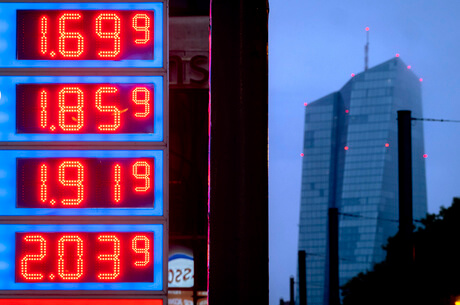The International Monetary Fund (IMF) has advised European policymakers, including the European Central Bank (ECB), to maintain the current high interest rates until they are certain that inflation is under control, despite slow economic growth. This recommendation, issued on Wednesday, cautions against celebrating too early as inflation shows signs of declining from its peak.
According to the IMF, underestimating the staying power of inflation could lead to a significant setback, potentially necessitating further rate increases that could significantly impede economic growth.
In its semi-annual regional economic outlook for Europe, the IMF observed that while some central banks in Europe are nearing the end or have already started decreasing their policy rates, a continued restrictive policy is essential to bring inflation back to the target.
The IMF highlighted that historically, it can take up to three years, sometimes even longer, to bring inflation down to desired levels. Although central banks seem to be pausing their rate hikes, failing to completely address inflation could result in a loss of up to one percent in annual economic output.
Alfred Kammer, head of the IMF’s Europe department, emphasized the need for caution and the potential risks of easing policies too soon. He noted that a stringent approach to interest rate policy is generally less risky than a lenient one. The ECB, which stopped increasing rates on October 26 for the first time in over a year, is currently in a favorable position.
Eurozone inflation reached its highest at 10.6% in October 2022 and has since dropped to 2.9% as of October. The ECB has raised its benchmark deposit rate by 4.5 percentage points from July 2022 to September 2023, going from -0.5% to 4%. Higher interest rates, a standard method to curb inflation, increase borrowing costs, thereby reducing demand and price pressures but potentially hampering growth.
The IMF predicts a “soft landing” for Europe post the impact of rate hikes, not anticipating a recession. However, growth forecasts remain uncertain and could be better or worse than expected. The IMF projects a growth rate of 0.7% for the eurozone this year and 1.2% next year. A quicker than expected fall in inflation could enhance consumer spending and boost growth. On the other hand, intensification of the Russia-Ukraine conflict and increased sanctions could lead to weaker growth.
Kammer also mentioned that the ongoing conflict between Israel and Hamas in Gaza has caused a temporary spike in oil prices but hasn’t significantly affected the European economy.


